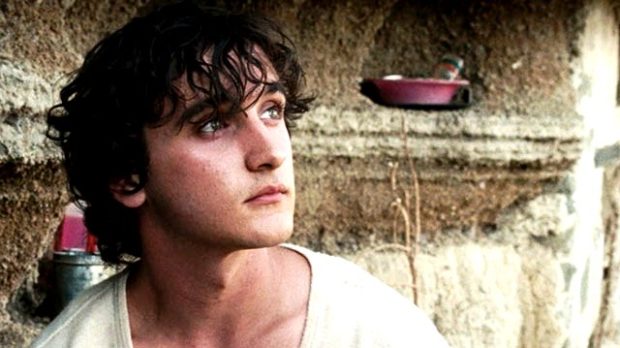 Alice Rohrwacher’s two-part fable portrays the fragility of goodness in a corrupted world.
Alice Rohrwacher’s two-part fable portrays the fragility of goodness in a corrupted world.
We’ve often heard about the problem of evil, framed in the context of theology, philosophy, or in literature. It’s less common to hear about the problem of goodness. What would that even mean? A few authors have tried to portray a perfectly good character. The comic realm seems easier in this regard: Cervantes did it with his Don Quixote and Dickens with Mr. Pickwick, both marvelous creations. But treated seriously, the problem becomes acute. How would a truly good person—kind, gentle, forgiving, innocent—live or for that matter survive, in our deeply flawed human society? Melville tried to show it in his long story Billy Budd. Dostoevsky gave us Prince Myshkin, the hero of his novel The Idiot. Both are tragedies, both conclude by showing us the incompatibility of pure goodness with the way people behave in the world.
Writer director Alice Rohrwacher has brought a modern sensibility to the problem and paradox of goodness in her film Happy as Lazzaro. It opens with a group of peasant families toiling as tobacco sharecroppers somewhere in rural Italy. Their lives and customs are so simple that we wonder what time period we’re seeing. It could be the 19th century. But wait, there’s a car, and from the looks of it this must be some time in the late 20th century. In any case, we discover that the peasants live on land belonging to a scornful and abusive Marchesa. They get to live in their huts rent free, with food and other necessities provided, but when the overseer comes to pick up the crop, they are always still in debt to the boss.
Among the peasants living and working there, there is one young man named Lazzaro, and played by a newcomer, Adriano Tardiolo. Lazzaro has an angelic face and a quiet demeanor. He’s sometimes teased and bullied by the others, but he’s always ready to help with anything if asked, whether it’s carrying an infirm old woman to the table when there’s a feast, or bringing coffee for the men and women that are drying and curing the tobacco leaves. Lazzaro is so innocent and naïve that he believes everything he’s told, and will do whatever is asked, with a gentle smile. Evidently, his parents are not living, and we don’t know why he acts the way he does. Everyone assumes that he’s mentally deficient in some way.
Now, the Marchesa has a son, a spoiled and manipulative young man named Tancredi. He befriends the gullible Lazzaro, who is struck with wonder that the son of his employer would want to be friends with him, and will do anything he’s told. But it’s all part of a scheme by Tancredi to fake his own kidnapping in order to get a large sum of money from his mother, and Lazzaro is tasked with bringing supplies to him as he hides out in a nearby mountain area. But when the police are brought in, they discover something about the Marchesa and her business that causes a scandal. As they start rounding everybody up, Lazzaro is still waiting in the mountains, and when he tries to get back, he falls off a cliff.
Here you might think the film would end, with a tragic finale for our good young hero. But then Rohrwacher performs a kind of flourish of magical realism, and the film turns out to have a part Two. In this part, Lazzaro will be the catalyst between the past and Italy’s recent present, which is more urban and even more deeply divided between rich and poor. He also embodies the fragility of goodness in the midst of our new, harsher reality. From an allegory of rich and poor, the film has been transformed into a fable about the painful compromises everyone has made in order to survive a brutal, unforgiving social reality—everyone, of course, except Lazzaro.
Gorgeously shot by cinematographer Hélène Louvart, with a transcendent lead performance from Tardiolo, and the palpable awareness of a spiritual reality greater than the struggles for survival that beset the lives of its characters, Happy as Lazzaro resolves itself with a painful paradox and a deep wisdom inherited from the realm of timeless myth and folktale.

Considered a failure upon its release in 1984, David Lynch’s version of Frank Herbert’s novel already displays the bold absurdism that the director would...

Jim McKay’s portrait of Mexican immigrants in Brooklyn who work hard and love playing soccer, is a sweet and satisfying film. A group of...

An immersive documentary shows the daily events in a series of Paris hospitals, along with incredible footage of microscopic surgeries. De Humani Corporis Fabrica,...